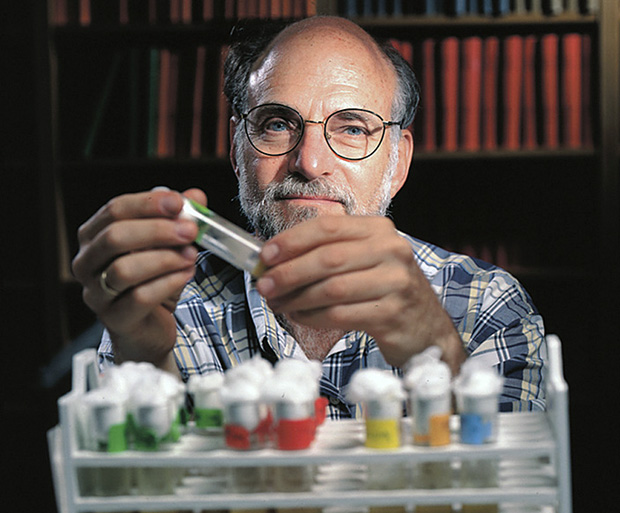Rosbash awarded Massry for circadian rhythms work
Many previous winners of this prestigious prize have gone on to win Nobel
 Photo/Copyright © Stanley Rowin
Photo/Copyright © Stanley RowinMichael Rosbash, the Peter Gruber Professor of Neuroscience and director of Brandeis’ National Center for Behavioral Genomics,
Two Brandeis researchers have been awarded the prestigious Massry Prize for their groundbreaking studies of the molecular basis of circadian rhythms.
Michael Rosbash, the Peter Gruber Professor of Neuroscience and director of Brandeis’ National Center for Behavioral Genomics, and Professor Emeritus of Biology Jeffrey C. Hall will accept the award in October in Los Angeles. The prize includes a substantial honorarium and nine previous recipients have gone on to receive Nobel Prizes.
“There is a tiny, superlative group of investigators like Michael Rosbash who make discoveries that open our eyes to new vistas and create new disciplines,” Provost Steve A.N. Goldstein said when the Massry Prize was announced. “Michael and his colleagues discovered the genetic basis for biological rhythms fundamental to life because they control when we sleep and are wakeful, how we absorb food and expend energy and how well we resist disease. His work shows how basic science can both explain and improve the human experience.”
Rosbash is a Howard Hughes Medical Institute Investigator and a member of the American Academy of Arts and Sciences as well as the National Academy of Sciences. He also is the inaugural Peter Gruber Professor of Neuroscience at Brandeis. Hall is a member of the American Academy of Arts and Sciences as well as the National Academy of Sciences, and was a recipient of the 2003 Genetics Society of America Medal.
They share the Massry with Professor Michael W. Young of Rockefeller University in New York.
This is the fourth major award for the trio stemming from their groundbreaking research into circadian rhythms using the fruit fly Drosophila melanogaster. They have also won the prestigious Canada Gairdner Award, that nation’s foremost international scientific honor, and, last year, they were awarded the Louisa Gross Horwitz Prize from Columbia University. In 2009, the Peter and Patricia Gruber Foundation awarded them its Neuroscience Prize.
“I am very excited about Michael receiving the Massry Prize, the latest in a string of awards recognizing his groundbreaking work on the molecular basis of circadian rhythms,” said Dean of Arts and Sciences Susan Birren. “His work has provided the first demonstration of a molecular mechanism for behavior and has allowed us to develop an understanding of how biological rhythms are established and regulated.”
The Meira and Shaul G. Massry Foundation established the Massry Prize in 1996 to recognize outstanding contributions to the biomedical sciences and the advancement of health.
Categories: Research, Science and Technology





